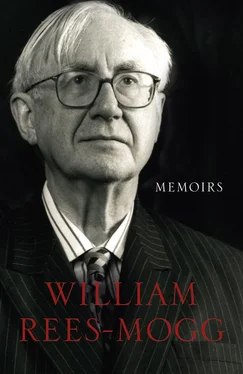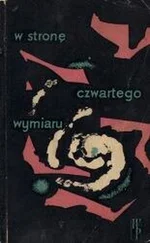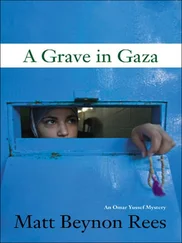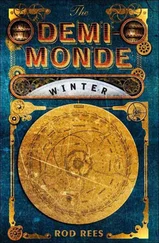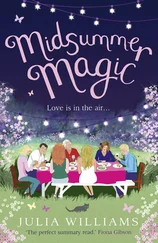I now think that I underrated the whole question of what my father had been through in the First World War. He felt, as many of those who survived did, a considerable guilt for being a survivor. The war made him feel that he should not compete in the world against people who needed the jobs. He felt that, as he had a reasonable sized estate and a reasonable income, he was in a position to lead the life of a quiet country gentleman without seeking employment and that is what he did. It was a life in which there was a lot of voluntary work and he made jobs for himself in farming which gave him an instinctive pleasure: he liked growing things; he liked having pigs; he liked having hens and he liked growing daffodils. It just about paid the wages of people who might not otherwise have had jobs during the slump.
My father inherited the long, solid, Somerset tradition of the Moggs, who had been local businessmen and landowners since at least the thirteenth century. They earned their livings as merchants, lawyers, estate agents, coal owners, bankers, clergymen, doctors, or whatever came to hand. They were involved in local government, but seem to have had little ambition to enter national politics, nor the connections to be able to do so.
In his early twenties my father inherited the family estate in Somerset, which then consisted of roughly 1200 acres and perhaps a dozen cottages, which still rented for about five shillings a week each in the 1930s and 1940s. The estate was encumbered with the death duties on his father and grandfather, and with substantial incomes payable to his sister, aunts and uncles. In capital terms he was a wealthy man, but the income that he was free to spend was not proportionate to his capital. This was the normal situation of landowners at that time, and still is today. Before the war, my father had worked briefly as a schoolmaster after spending four years at Charterhouse, four at University College, Oxford, and a further year at the Sorbonne.
By the age of twelve he had introduced me to classical Latin and Greek and even Old French. I had also been introduced to the comparative study of language. I had learned how words changed their form, so that ‘W’ in English would be the equivalent of ‘Gu’ in French, with ‘William’ matching ‘Guillaume’. I was taught the distinction between the English words which came from Germanic roots, from Norman French, from Latin and from Greek. I have never lost this interest in words. One of our own children, when little, observed that we ought to set a place for the Oxford English Dictionary at the dining table, since one or other volume was so often brought out at family lunch to look up the meaning and derivation of a particular word.
When he returned from the Sorbonne, Fletcher had had difficulty in choosing a career. His father, by then suffering from depression, had gloomy visions of Fletcher going to the bad. There had been scapegraces in the family: my great-great uncle, John Rees-Mogg, in one generation and the much-loved Charles in the next. My father was never remotely likely to become a third. Nevertheless, my grandfather, William Wooldridge Rees-Mogg, would not allow my father to become a solicitor, on the grounds that half the solicitors with whom he had trained had ended in jail for dipping into their clients’ funds. That was a pity, as my father would have made a first-class solicitor, highly intelligent, punctilious in detail, practical and exceptionally honest.
A friend of Wooldridge suggested that Fletcher might join the Chinese Consular Service, an absurd suggestion. Fletcher refused. Father and son negotiated at arm’s length, Wooldridge in the library at Cholwell, Fletcher in the morning room, passing notes to each other. One must have some sympathy with Wooldridge, who was depressed, going blind and proved to be dying. To my great benefit, Fletcher gave me the time and love which Wooldridge had not been able to give him.
Difficult father–son relationships had been common in the Mogg family, going back to the seventeenth century: they made nasty remarks about each other in their wills. My father was absolutely determined not to repeat in his relationship with me the relationship he had had with his father. And he was completely successful. On both sides our relationship was a very affectionate one of comfort and respect.
After my father was demobilized in 1919 he went to live in Parkstone, near Bournemouth. In the last months of the war he had been serving with another young officer who was in the motor business, and was a member of the Vandeleur family. Vandeleur had decided to produce a sports car for the British market. My father set up a manufacturing business to make the chassis; the engines were substantial lorry engines from the United States. Like several other ventures by young officers selling luxury cars, this looked promising for a time, but the post-war recession knocked out the market. However, my father designed the chassis and about twenty cars were constructed. In 1921, my mother’s sisters crossed the Atlantic to spend an English holiday with her. There is a picture of my American aunts and my English grandmother sitting in a Vandy, as the cars were called. It is a splendid looking car, but it does not look very economic.
In 1925 my father had the opportunity to return to Cholwell and manage his estate. He liked to grow things himself, though the farms continued to be tenanted. He kept pigs and hens and grew a large quantity of wild blackberries.
Chapter Three
A House Built on a Hill
I am standing at the top of a little hill overlooking the back of Cholwell House. No one is there except me. It is my third birthday, and is therefore 14 July 1931. I am conscious that my birthday makes me a special person in the family for that day. Much more than that, I feel that I am very much myself, am William Rees-Mogg, and that this is a good thing to be. On a good day, after a glass of champagne, I can still feel the echo of this childish triumphalism. I am certain that the William Rees-Mogg of 1931 is the same consciousness as the William Rees-Mogg I now am.
As a boy I was much surrounded by women, in a family of two elder sisters, a mother, a maiden aunt in England, two aunts in America, an American and an English grandmother, and two maiden great-aunts who lived in St James’s Square in Bath. There were also the maids and the cook, Mabel Sage. My father, myself and very distantly my clergyman great-uncle Henry Rees-Mogg were the only representatives of the male sex. I was the sole male Rees-Mogg of my generation. I did not, at the age of three or four, ask what the universe was for, what my role might be in it, or ‘what is man with regard to this infinity about him’. I knew, with the certainty of infancy, which is even more implacable than the certainty of childhood, that I was myself, that I was in my proper station. I enjoyed being me.
Many children start to ask metaphysical questions at an early age. My eldest daughter, Emma, entertained the Platonic idea of the pre-existence of souls at the age of four. The early Christian father, Origen, also held that theory, as did the English poet William Wordsworth. Emma and I were walking on the lawn at Ston Easton, when she said to me, ‘I understand what happens when we die but I don’t understand where we are before we’re born.’ Her daughter, Maud, was equally interested in questions that had interested the ancient Greek philosophers when she was four. She followed the theory, which I think was first framed by Empedocles, and since popularized by Stephen Hawking, of the plurality of worlds. ‘I know,’ she said, ‘that worlds disappear and new worlds start, but do all the other worlds have Father Christmas?’
The Elizabethan philosopher Lord Herbert of Cherbury gives a similar account of his own early development: ‘It was so long before I began to speak, that many thought I should be for ever dumb; when I came to talk, one of the furthest enquiries I made was how I came into this world? I told my nurse, keeper, and others, I found myself here indeed, but from what cause or beginning, or by what means I could not imagine, but for this I was laughed at by nurse.’ 1
Читать дальше
